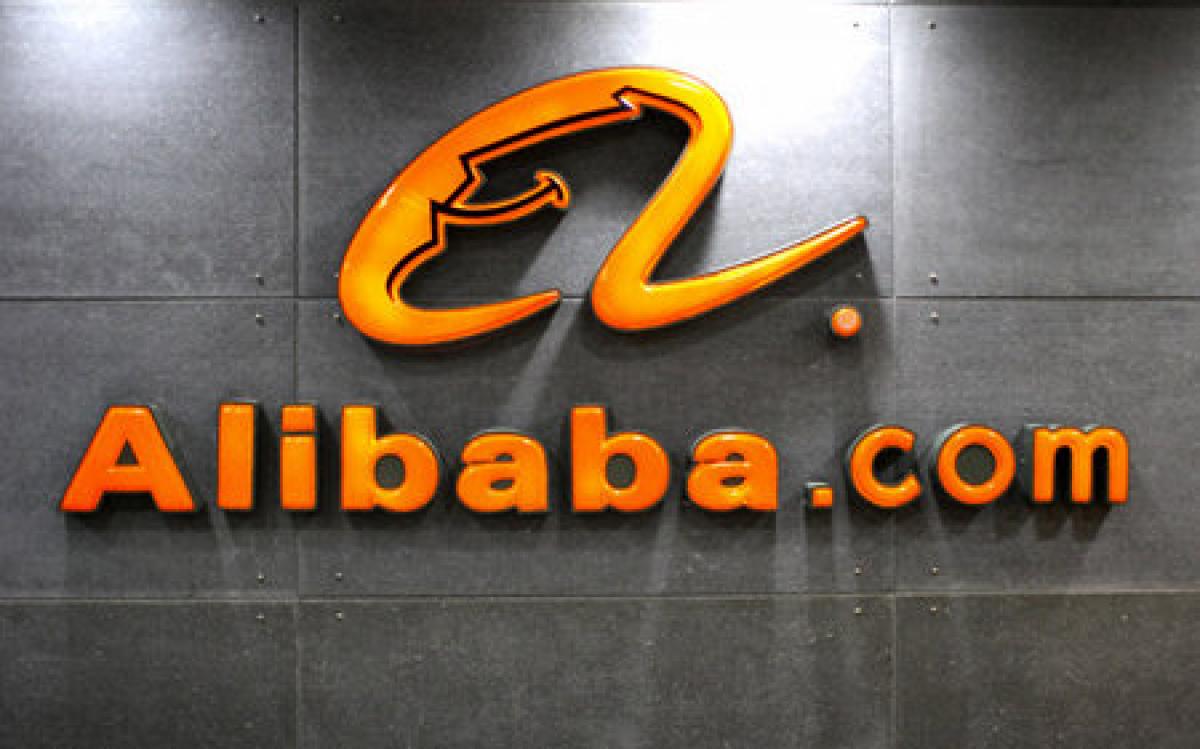Live
- From overcoming setbacks to leading India in U19 Women’s Asia Cup, Niki Prasad's amazing journey
- Constitution debate: PM Modi hails 'Nari Shakti'; makes strong pitch for 'United Bharat’
- Bihar: Inquiry initiated against principal who went to buy veggies during school hours
- TN: DMK postpones executive meet due to heavy rains & Parliament session
- Porous silicon oxide electrodes can fix durability issues in batteries: Researchers
- Jalandhar civic polls: AAP promises launch of 100 e-buses, round the clock water supply
- Economic upliftment of rural women is priority of Tripura govt: CM Saha
- Rajmata Jijabai Trophy: Manipur move to top of the table, T.N register first win
- Italian envoy Baroli hoping to strengthen ties with India through football
- CPI-M revokes suspension of Bengal party leader accused of sexual harassment
Just In
Business sentiment hasn't felt better for small enterprise sellers post Alibaba news


As a small but important cog in the e-commerce gravy train, his business has worked with both Flipkart and Amazon in the past, and is now being wooed by Snapdeal.
Ensconced in his red chair, it has been a hectic Wednesday afternoon for 49-year-old Rajat Sethi. His small, three-room office in Delhi's cramped Karol Bagh market is swamped with pressure cookers, sandwich makers, hand blenders, air fryers and rice cookers. There is hardly any place for chairs. Sethi, a small electronics dealer, has been busy wiping sweat off his forehead from Delhi's dry summer; but he is also feeling the heat as his small enterprise seeks to keep pace with orders from some of the biggest names in India's ecommerce industry.
As a small but important cog in the e-commerce gravy train, his business has worked with both Flipkart and Amazon in the past, and is now being wooed by Snapdeal. With Chinese e-commerce giant Alibaba too on the way, business sentiment hasn't felt better for sellers like Sethi. From a time when e-commerce companies had the upper hand, cherry-picking sellers, life has come full circle for people like this electronics vendor. Now, his business is being courted by a raft of incentives.
"I would have never imagined such a thing some three years ago. But cut-throat competition means e-commerce players are going all out to woo sellers," he says. "Consumer loyalty would be hard to achieve, so they are trying their luck with sellers."
Even as he decides how to deal with Snapdeal's overtures (for the present, not too favourably, given his perception that Amazon and Flipkart are larger in electronics), sellers like Sethi are acutely aware that the industry they form the bedrock of — e-commerce, specifically marketplace e-commerce — could be set for a tectonic shift. That's because Alibaba, the Chinese internet giant, is set to make its entry into India and with it change the rules of the game, forever.
The e-commerce industry's metamorphosis may have got a firm shove with recent guidelines from the Department of Industrial Policy and Promotion (DIPP) permitting foreign direct investment (FDI) in marketplace businesses (and not business models based on holding inventory). But, more painfully for this industry, it slammed the door on discounts of any sort. While this move came on the back of intense lobbying by the old guard in an effort to win back business, e-commerce companies' arms have been twisted to fall in line and they are scrambling to find a way out.
"DIPP's move will help clear the ambiguity in the (retailing) market and level the playing field (between offline and online retailers)," says Kumar Rajagopalan, chief executive of industry lobby Retailers Association of India. "Marketplaces, like malls, should have no role in dealing directly with consumers and influencing prices." While he accepts that e-commerce companies may find loopholes to keep business going as usual, he predicts that both sides may want to collaborate with each other and build omni-channel marketplaces, rather than extend this feud. "In a world of discounts, several owners are worried about their brand's reputation," he adds. "This may change that perception."
A key part of this policy is the move to break the sway large sellers had over business from e-commerce companies; in turn, this will benefit smaller enterprises looking to cash in from this e-commerce boom.
Darshan Mehta, a Mumbai-based fashion apparel seller, is listed on Flipkart and Snapdeal and has a turnover of over Rs 60 lakh per month on Flipkart and Rs 80 lakh on Snapdeal. Over the past month, he has been aggressively wooed by the former to exclusively sell on its marketplace, with a complete waiver of shipping charges and 100% reimbursement on returned damaged products. With the online battle only expected to intensify and regulation shifting, sellers like Mehta may cash in on this generosity. "It's the sellers and the consumers who stand to benefit most from the dogfight between the e-commerce players," he says. "It's not that e-commerce players have become generous to sellers. They are being forced to do so because of the threat from Alibaba."
For India's e-commerce sector, then, Alibaba's much spoken-of India launch is one challenge facing the industry in the midst of a painful transition.
While local players prepare to deal with not just Amazon, but Alibaba too, their onset may be a good reason for an industry in some strife to fix itself. E-commerce executives may promise the moon to consumers, but, internally, they have struggled to convert this promise to profits.
Source: techgig.com

© 2024 Hyderabad Media House Limited/The Hans India. All rights reserved. Powered by hocalwire.com






